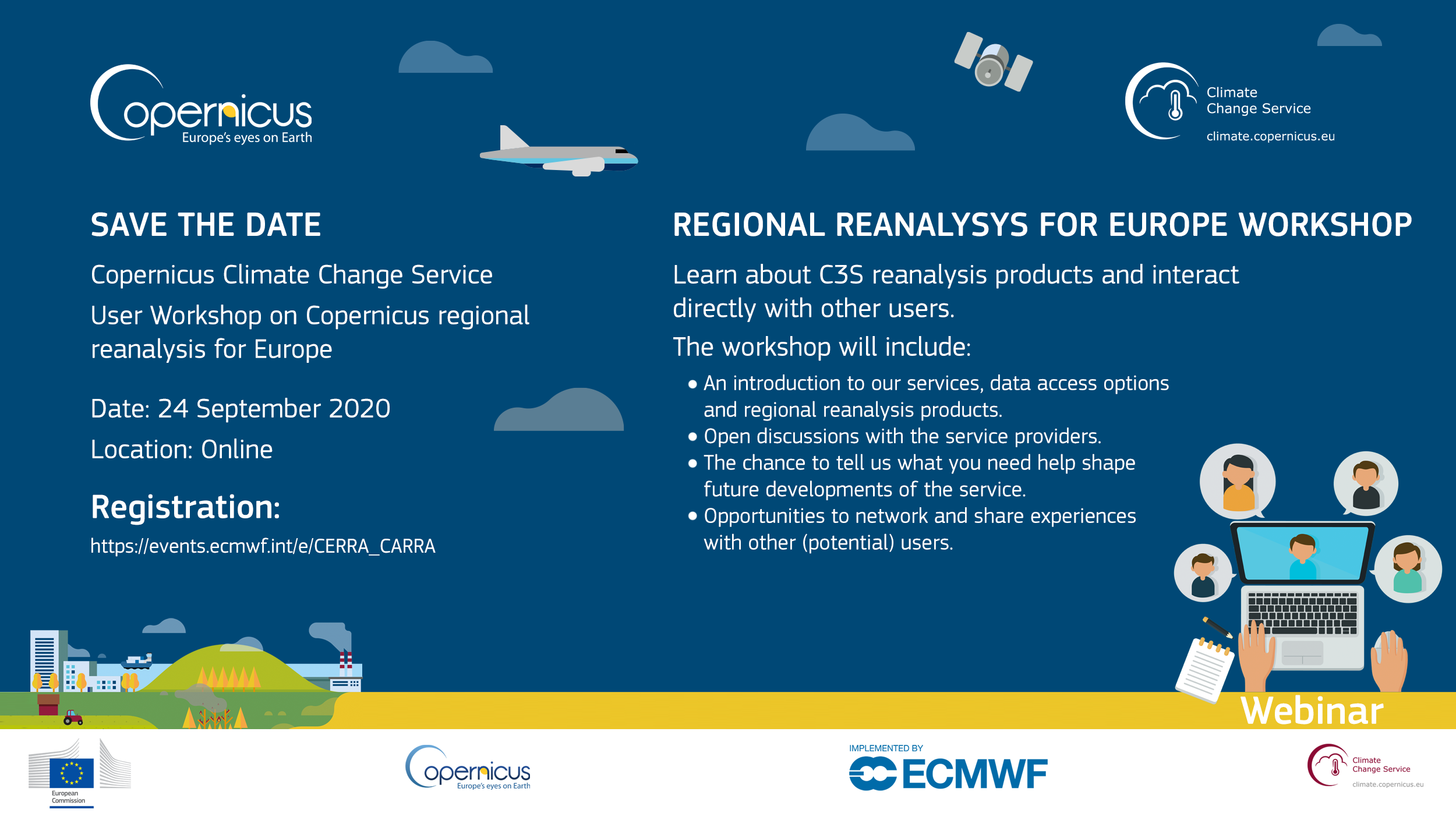
Reanalysis products are used extensively in a wide range of applications and are among the most used climate datasets. Users are not solely confined to the scientific community but also stakeholders, public organisations and the private sector can be counted amongst them. Basically, all who are in need of long-range climate time series.
The most prominent example of reanalyses might be ERA5 – the global reanalysis produced by ECMWF as a contribution to Copernicus. However, the desire for even higher resolution and better quality, especially for surface variables, is driving the demand for regional reanalyses. There is a growing number of applications coming from a variety of sectors, including wind energy and hydrology as well as coastal and urban applications.
This workshop will focus on the regional reanalyses (RRA) for Europe and the Arctic, which are produced as part of the Copernicus Climate Change Service (C3S). The UERRA-HARMONIE RRA is available from 1961 to 2019 with a horizontal resolution of 11 km. An additional surface analysis produced with MESCAN-SURFEX is provided at a resolution of 5.5 km. Moreover, the production of the next generation RRA has started. It is called CERRA (Copernicus European Regional ReAnalysis) and it includes a surface analysis (CERRA-Land) as well. Both components are produced at 5.5 km horizontal grid spacing.
The production of the Arctic RRA (CARRA = Copernicus Arctic Regional ReAnalysis) is also ongoing. The reanalysis is produced for two subdomains – one covering Greenland and one over the Norwegian Sea and the Barents Sea – and will span the period July 1997 to June 2021. CARRA is produced with 2.5 km horizontal resolution using the non-hydrostatic HARMONIE-AROME weather model.
Workshop themes
This workshop will introduce the services, its systems as well as the RRA products. The added value of the regional reanalysis compared to the global reanalysis will be highlighted. Participating users are invited to present their applications of the RRA in, for example, climate services, energy sector etc. The set-up of the workshop will foster open discussions with the service providers and (potential) users to understand their needs and possible shortcomings in RRA products.
The workshop will be based on your active participation. We invite all participants to contribute with presentations though this is not a requirement for participation. A significant amount of time will be reserved for open discussions.